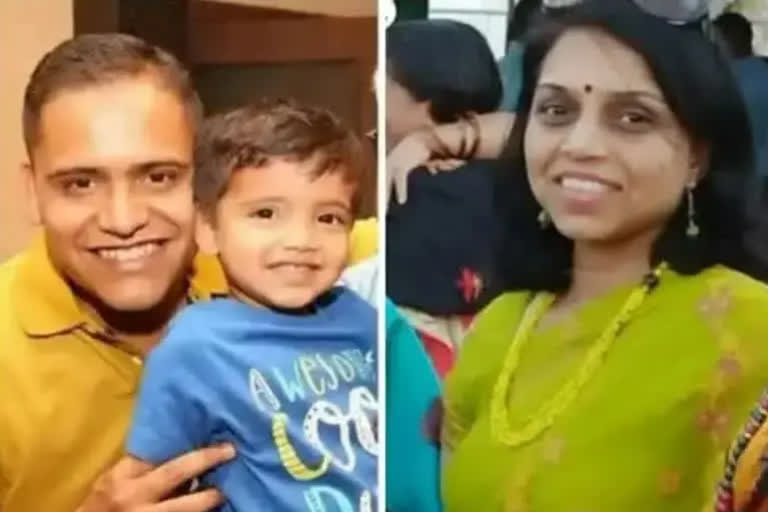New Delhi: Responsible for Saturday’s deadly ambush of an Assam Rifles convoy near the India-Myanmar border in Manipur’s Churachandpur district, the People’s Liberation Army (PLA), an insurgent outfit of Manipur, has expressed regret over the death of two civilians during the encounter.
Of the seven people killed in the gunfight, two—Colonel Viplav Tripathi’s wife and his six-year-old son—were civilians. The other five—including Col Tripathi were from the Assam Rifles—a paramilitary force that is mandated to securing the sensitive India-Myanmar border.
A release issued by the PLA’s parent body the Revolutionary People's Front (RPF), said: “In recent ambush a mother and a child were killed, it was a very sad and unfortunate “May Their Souls Rest in Peace”. We had no prior knowledge of their present (presence) in that convoy. If we knew, there might be a different scenario.”
Stating that in a battle there are “collateral damages”, the release said: “as a principle… PLA always try to avoid harming innocent people specially women and children.”
The move may have been prompted by a wide condemnation of the attack by civil society including tribal ethnic communities like Nagas and Kukis who inhabit the region.
The insurgents comprising a joint team of PLA and the Manipur Naga People’s Front are believed to have slipped into Indian territory from their jungle camps located within 20 km from the international border inside Myanmar.
The outfit also cited several past examples where it apparently aborted attacks because of the presence of women and children. “Vivid examples at Komkeirak, Keisamthong and many more. Indian Army and Manipur police have full knowledge about those examples.” It also quoted Sanjiv Krishan Sood, a former additional BSF DG as saying: “… the militants (of Manipur) never attacked convoys at those times in order to avoid collateral damage.”
Negating the narrative that the PLA and its parent body—the Revolutionary People's Front (RPF)—is a part of the much-older United National Liberation Front (UNLF), the release said “A few members of RGM (Revolutionary Government of Manipur) reorganize(d) the people with a new spirit of the Marxism-Leninism-Mao Zedong thought leaded the revolution of the people by organizing a new army of the people.”
Among other issues, the devastation wrought by the brazen attack is understood to be due to intelligence failure on the part of the security forces as well as a failure to follow set SOPs.
Over the decades, Manipur has been one of the worst insurgency affected states that saw up to about 42 insurgent outfits at a time. While about 15 are active now, many of which are banned, most are engaged in talks with the government.
Also Read: Manipur ambush has makings of CorCom joint operation



